Cobra Kai has been delivering nostalgia and new moves since 2018, building on the underdog spirit of The Karate Kid films with earnest performances and an endless heart. As Season 6 arrives, however, some fans worry this karate kid has overstayed his welcome. I’m here to argue why that ain’t so.
First, let me catch you up: Daniel and Johnny have united their dojos after decades of facing off. But just as the Valley finds peace, their old enemy Kreese escapes jail. Now as the kids train for a global tournament, shadows loom once more.
While some say the series repeats itself, I see it reflecting how conflict arises when we fail to grow. By revisiting past wounds, Cobra Kai offers a mirror, reminding us that true victory lies not in vanquishing others but in overcoming our own flaws. It also reminds us that life’s deepest lessons surface not through adversity alone but through the guidance of those who’ve weathered darkness before.
In what follows, I’ll examine how Season 6 builds on these timely truths, continuing karate’s journey toward inner peace with humor, heartache, and high kicks. My aim is to reveal unexpected depths in what some dismiss as “comfort TV.” So sensei, assume the position; let’s continue this lesson in seeing past surfaces and into the soul.
How Cobra Kai Subverts Martial Arts Movie Tropes
While criticism of the latest season of Cobra Kai centers around “going through the motions,” I think the show merits deeper analysis for how it upends expectations. On the surface, Cobra Kai adheres to the archetypal hero’s journey structure seen in martial arts movies since the Karate Kid films. However, scratch beneath the surface, and you’ll find insightful social commentary on aging, toxic masculinity, and breaking cycles of conflict.
Rather than pitting good and evil in sharp contrast, Cobra Kai develops its characters along complex, evolving arcs. Johnny Lawrence, once the All-Valley Champion bully, recognizes his past flaws and works to overcome them. Even John Kreese, though still ruthless, displays glimpses of humanity; we understand how his traumas shaped his cruelty, not to excuse but to explain.
Most poignantly, Daniel and Johnny’s rivalry transcends simplistic resolution. Their evolving partnership illustrates the messiness of reconciling past wrongs and finding mutual understanding. No moment fully heals old wounds or undoes harm done, but through sincere effort, true peace emerges. This nuanced portrayal of moral growth rings authentic and leaves space for ongoing reflection on viewers’ own relationships.
Beyond nuanced characters, Cobra Kai satirizes societal fixations with extremes. The international karate tournament amplifies stakes to an almost absurd degree, a send-up of masculine competitiveness. Subverting action tropes, fights serve emotion over aesthetics. Solutions come from open communication, not fisticuffs, challenging bravado as the sole path to conflict resolution.
By leveling self-aware critique at its own genre, Cobra Kai sparks thought on channeling aggression constructively and finding middle paths amid division. It leaves the mat not with winners and losers, but all growing as whole human beings. That’s a lesson far deeper than a crane kick.
Finding Humanity Through Conflict
With age comes wisdom, as the old saying goes. And on Cobra Kai, no one has aged quite like Daniel LaRusso and Johnny Lawrence. After decades spent nursing grudges and one-upping each other through karate combat, these two have finally learned to bury the hatchet.
Their rivalry was born of adolescent angst and social dynamics all too familiar to ’80s kids. Johnny, mistreated by an uncaring father, found a toxic outlet in bullying nerds like Daniel. Revenge became Daniel’s mission, fueled by the memory of humiliation. For most of the series, their feud plays out like a high school feud prolonged decades past graduation.
Yet beneath the macho posturing lie deeper wounds. Both men struggled to find purpose after high school’s end. Karate became an identity as much as a sport. Their growing friendship acknowledges life’s capacity for change and our ability to overcome past versions of ourselves.
Now midlife sensei to a new generation, Daniel and Johnny impart wisdom gained through hard lessons. They teach that conflicts arise from unmet needs, not individual shortcomings, and can be addressed through communication, not combat. Even Johnny, no stranger to machismo, recognizes that anger rarely solves problems.
Their maturation mirrors society’s. Twentieth-century gender norms that pitted men against each other shaped these characters’ worldviews. In reconsidering their rivalry through counsel rather than fists, Cobra Kai suggests we too can transcend outdated frameworks hampering progress. Conflict stems not from intrinsic qualities but from our refusal to understand each other.
As Daniel and Johnny mentor teens navigating identity issues of their own, parallels emerge. Like their senseis, Miguel, Samantha, Robby, and Tory initially see karate as a means to prove themselves in a world of vague expectations. Through growth, both individually and as a dojo, they learn skills for life, not just the tournament.
At its heart, Cobra Kai proposes that, through understanding our shared humanity, even long-standing opponents can become comrades. Its graceful aging of iconic characters shows that wisdom often develops through facing life’s conflicts—and each other’s—with empathy, courage, and good faith. Beyond karate lie life’s deeper lessons.
Community Over Competition: Caring for Others Above Personal Glory
While karate throwdowns thrill fans of Cobra Kai’s fight choreography, the show traffics in themes far deeper than painted black gi’s. Beneath rapid-fire kicks lies a profound meditation on personal growth.
Through the journey of Johnny Lawrence, we see how damaging one’s past can be, yet also that no man is defined by mistakes alone. For John Kreese, hatred became a twisted philosophy justifying cruelty, yet the show asks if even the most blackened souls can evolve.
Their rivalry began in youth, and Daniel and Johnny now model détente after decades at odds. Respect replaces resentment as they assist troubled teens on difficult roads less traveled. Miguel, once a bullied outcast, champions forgiveness; Robby, scarred by abandonment, finds solace in his chosen family. Even Tory, a product of a broken system, opens to empathy through friendship with hated “enemy” Sam, proving that under pressure, humanity’s hardest shells may crack.
These redemptive arcs show life’s complexities—people are works-in-progress. Change happens not through violence but through open hearts. Where Cold War ideologies like “No Mercy” divide, compassion unites. Though nostalgia fuels fantasies of glory through combat, Cobra Kai suggests karate’s true purpose lies beyond trophies: it is a vessel for nonviolent resolution and better angels of our nature.
The dojo here serves as a microcosm of society: diverse souls brought together through shared struggles, learning respect through shared triumphs over fear and prejudice. If peace is a process, this series demonstrates how even lifetimes of trauma may be unlearned, one human connection at a time. In a world where antagonists seem preordained, Cobra Kai reminds us that beneath black and white lie infinite shades of gray—and infinite potential for good.
Revisiting the Valley Through Fresh Eyes
Cobra Kai’s insistence on looking back often obscures its ability to look within. Across six seasons, the show has mined nostalgia from classic films while sidestepping deeper reflections on its own implications. But as the story barrels toward its end, might this legacy sequel use its final moments to reconsider how far the karate kids have truly come?
Consider Tory, the once ruthless “bad girl” who’s evolved into one of the show’s most thoughtful portrayals of trauma. For years, her rage drove the plot, yet its root cause was never interrogated. Now, glimpses into Tory’s home life hint at darker truths left untouched by dojo redemption. Might the show re-examine those it once reduced to simplistic archetypes and hold up a mirror to how its broad social commentary has narrowed?
Even Johnny, who’s charm invites few challenges, maintains a veneer of progress that rarely cracks. His one character development—learning to care—leaves unsaid the prejudices that stained his youth. As a white man seizing airtime in stories of empowerment, might examining Johnny’s role more critically broaden the audiences the series claims to inspire?
Change, after all, requires more than surface statements; it demands we scrutinize societal sins left dressed as nostalgia. As the kids leave their nest, perhaps Cobra Kai could use its final moments to spur not jingoism but journaling—asking tough questions of its own reality and of viewers’ desire to return forever to a sanitized past. The Valley’s future need not mimic its faults if only its storytellers can see how far they’ve left to grow.
Running on Fumes: Signs the Premise Has Run Its Natural Course
While karate competitions drive Cobra Kai’s action, it’s the interpersonal dynamics that keep us invested season after season. But maintaining conflict between Daniel, Johnny, and their students sometimes requires contrivances that strain believability.
Rather than viewing repeated face-offs as mere formulas, we could recognize karate’s symbolic role in navigating life’s challenges. Each rivalry reflects deeper issues, like Daniel struggling to accept his mentors’ humanity or Johnny overcoming abandonment through finding family.
Their differences aren’t trivial, but they are opportunities for growth. Not through macho posturing, but openness; not dominance, but understanding. Though clashing in season 1, Chozen now models reconciliation, proving enemies can become empathetic allies.
Cobra Kai thrives in quiet moments, like Miguel comforting Robby after injuries or Tory learning empathy while leading Kenny to healthier paths. Under brutal surfaces lie caring souls, showing power comes from empowering others, not dominance.
The delays between seasons afford reflection on these lessons and how karate spirit applies beyond teen drama. As politics grows toxic, might we overcome it through courageous listening, acknowledging our shared stake in each other’s dignity?
Cobra Kai’s heart lies not in fight choreography but in depicting struggle and redemption with nuance. Its appeal comes from reflecting on our own journey to see “opponents” as complex people deserving compassion even when fear or ego close our fists. Maybe season 6 can inspire closing fists into hands and opening hands to understand lives unlike our own.
Beyond the Battle in the Backyard
While the familiar fisticuffs fueling Cobra Kai may grow repetitive, the heart underlying each throwdown is what has resonated with audiences for decades. Beyond realistic depictions of high school rivalry, this series taps into universal human truths: our constant grappling with community and belonging, identity and integrity, cruelty, and compassion.
These themes don’t emerge through karate alone, but in the richly flawed characters portraying life’s complexity. Even villain Kreese, once a cardboard cutout, has become a case study in radicalization’s roots and one’s ability to overcome toxicity internalized in youth. Then there’s Johnny, a lovably lost soul, learning that caring requires humility far beyond “wax on, wax off.”
Their arcs hint that social bonds matter most. Through shared struggles, Johnny and Daniel transcended toxic individualism, prioritizing community over petty competition represented by contrived “Team Miyagi-Do vs. Eagle Fang” divides. Perhaps this signals the importance of cooperation in an era when propaganda preaches zero-sum solutions.
Looking ahead, can Kreese rediscover his humanity? Might the teens transition past the surface binaries of “good guy” and “bad girl” to see each other’s full dimensionality? How the younger cast navigates life beyond the dojo hints at the series’ hopeful message: through empathy and emotional literacy, even ingrained hatreds can fade.
In a world where aggressive ideologies and simplistic framings still appeal, Cobra Kai’s heart offers solace. It serves as a gentle reminder that when we listen beyond the loudest voices, even longtime “enemies” share far more than separates them—a lesson as crucial for teens as adults worldwide. Its swooping limbs may grow stale, but the show’s soul bodes well for how its saga will end: on a note of forgiving and being forgiven, which is to say, on hope.
The Review
Cobra Kai Season 6
Throughout its run, this series has proven itself a touchstone, deftly blending nostalgia with modern commentary. Even in moments of formulaic frivolity, the heartfulness in its characters shines through, reminding us of humanity's potential for growth. Now that the story is winding down, it's heartening to see longtime "enemies" Johnny and Daniel standing as allies—proof that toxic ideologies can be overcome through compassion. In a polarized age, such lessons are lessons worth their weight in gold. Though repetitions blunt the series' sharpest kicks, its deeper lessons on mercy, empathy, and redemption continue to resonate. In that way, Cobra Kai has surpassed its origins to become far more than bubblegum entertainment; it offers a tae kwon doe of hope, showing us how kindness and understanding can triumph where cruelty has reigned.
PROS
- Complex, heartfelt character development
- Thoughtful exploration of rivalries, redemption, and social themes
- Strong intergenerational appeal thanks to Karate Kid nostalgia
- Well-choreographed karate action sequences
- Humor that doesn't undermine dramatic sincerity
CONS
- Repetitive rivalry-based plotlines grow stale.
- Occasional contrivances to force character conflict
- Recent seasons haven't lived up to earlier heights.









































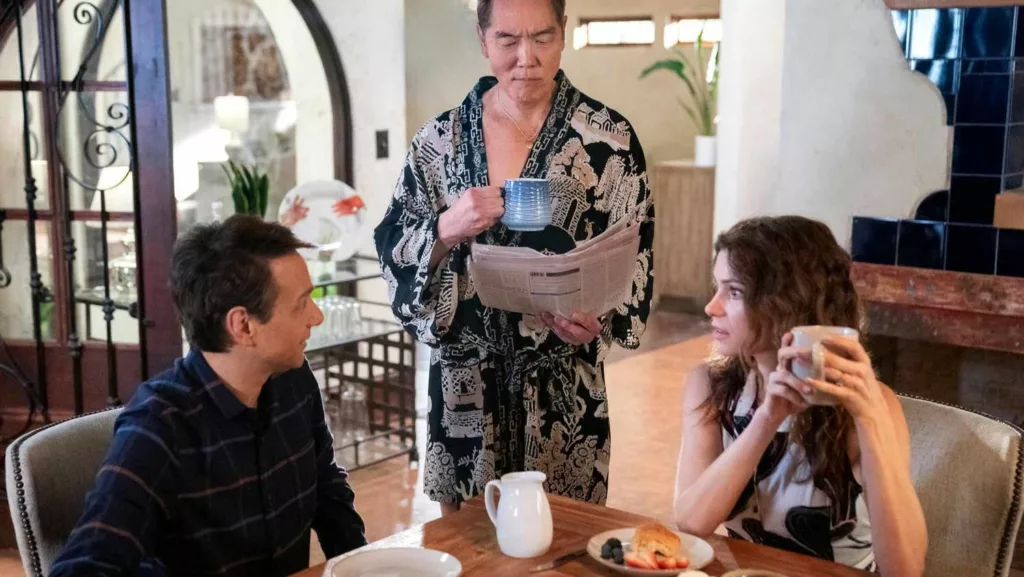
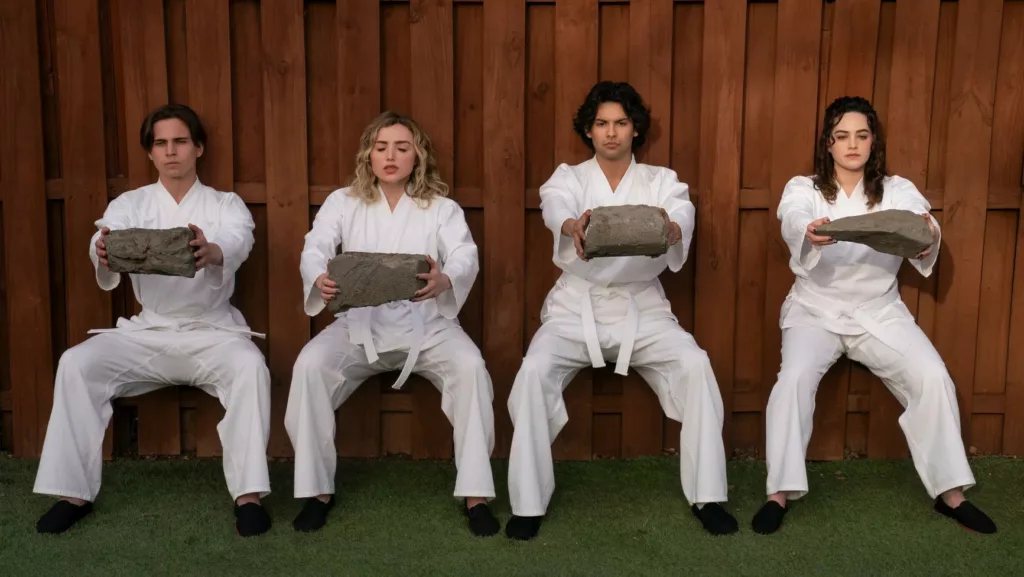
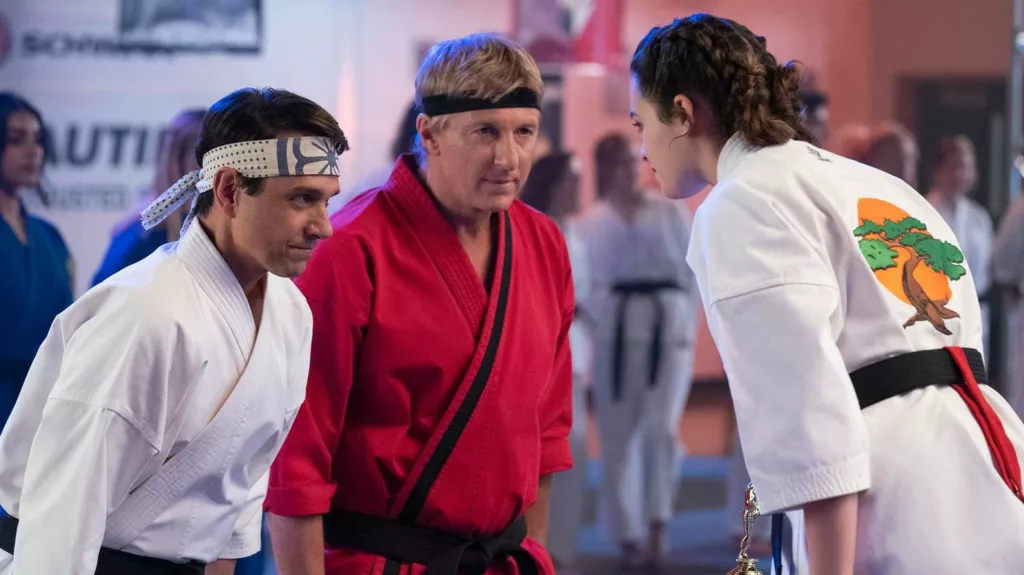
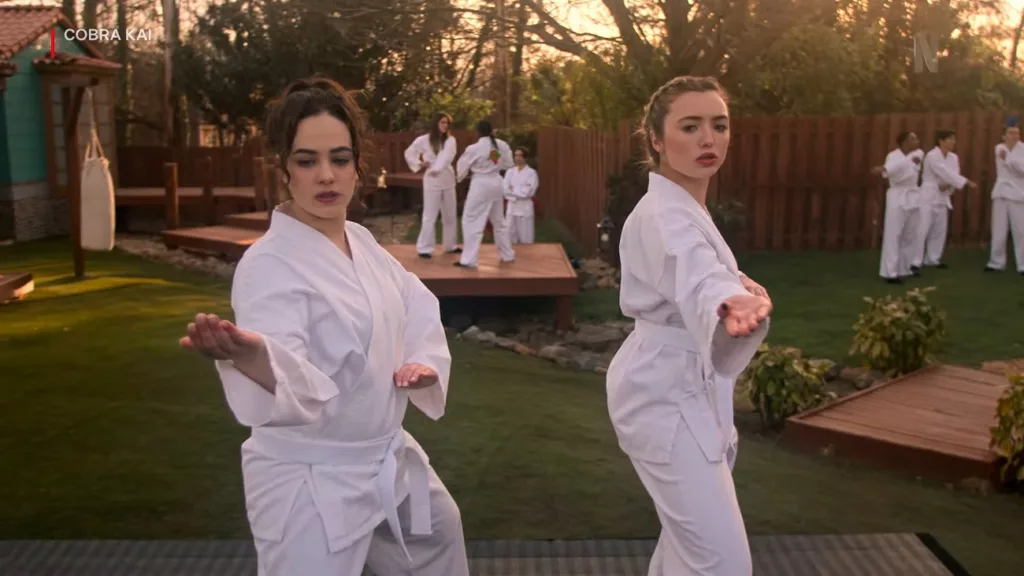
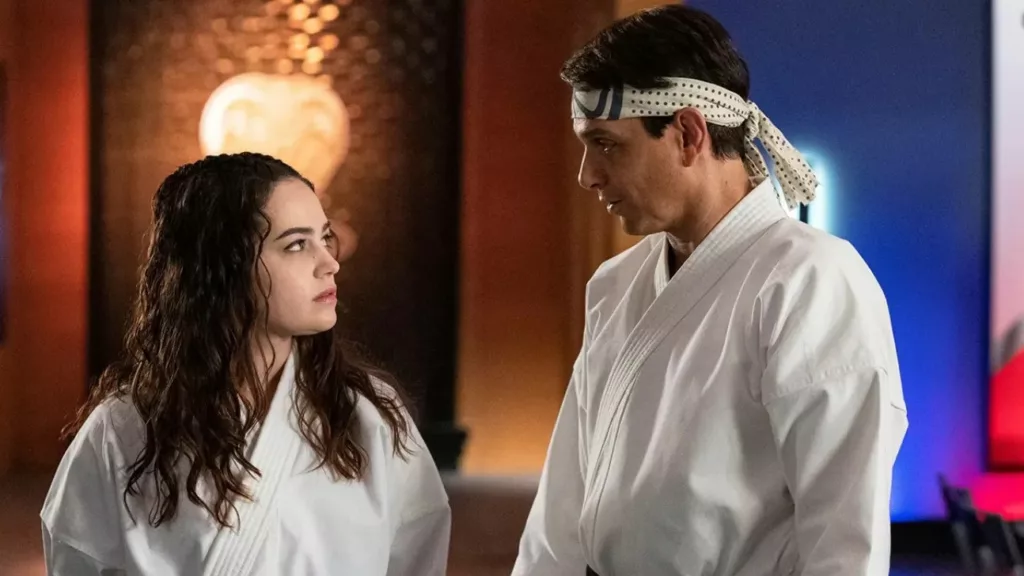








Discussion about this post